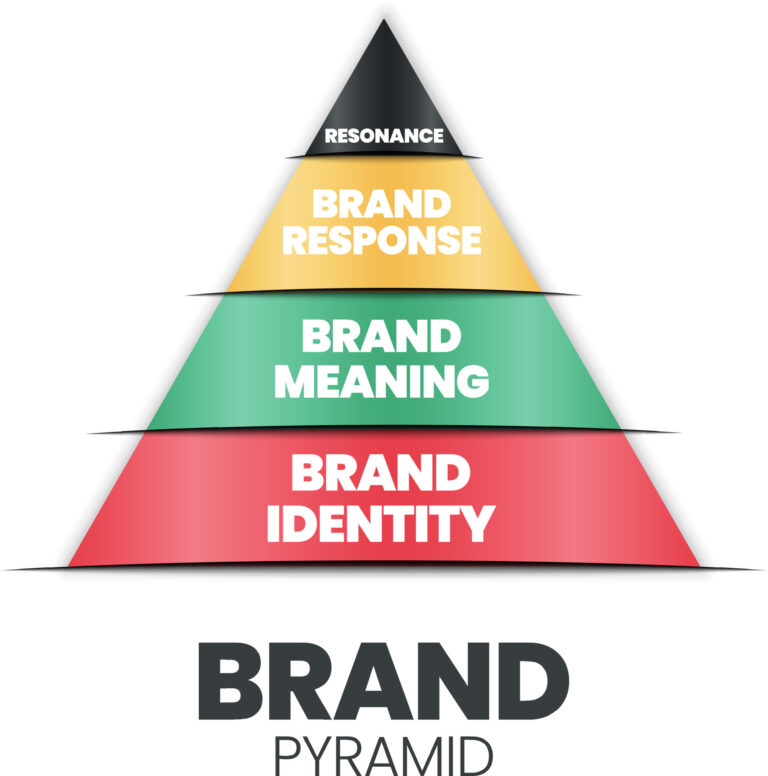All Electric Car Brands: Navigating the Pure EV Landscape
All Electric Car Brands: Navigating the Pure EV Landscape cars.truckstrend.com
The automotive industry is in the midst of a transformative shift, accelerating towards an all-electric future. While traditional automakers are rapidly electrifying their lineups, a distinct and increasingly influential segment has emerged: All Electric Car Brands. These are companies that, from their inception, have been solely dedicated to designing, manufacturing, and selling Battery Electric Vehicles (BEVs), with no legacy ties to internal combustion engine (ICE) technology. They represent the cutting edge of innovation, often pushing boundaries in design, software, battery technology, and charging infrastructure, making them critical players in the global push for sustainable transportation.
Understanding these pure-play EV manufacturers is crucial for anyone interested in the future of mobility, whether as a consumer, investor, or enthusiast. They embody a vision of what a car company can be when unburdened by decades of gasoline-powered heritage, allowing them to innovate with unprecedented agility and focus.
All Electric Car Brands: Navigating the Pure EV Landscape
The Genesis of the Pure EV Player
The concept of an "all electric car brand" was largely popularized by Tesla. Founded in 2003, Tesla didn’t just build electric cars; it built a brand around sustainability, high-performance technology, and a direct-to-consumer sales model that disrupted the traditional dealership network. Their success demonstrated that a market existed for premium, long-range EVs, paving the way for a new generation of automotive startups.
Unlike legacy automakers who must manage a complex transition from ICE to EV production, often balancing investments across both, all-electric brands can channel all their resources and intellectual capital into battery technology, electric powertrains, charging solutions, and software integration. This singular focus often translates into faster innovation cycles, deeply integrated software ecosystems, and a brand identity intrinsically linked to the electric revolution.
Leading the Charge: Key All-Electric Brands
The landscape of all-electric car brands is diverse, ranging from luxury disruptors to mass-market innovators and niche players. Here are some of the most prominent:
- Tesla (USA): The undisputed pioneer and market leader. Known for its extensive Supercharger network, advanced driver-assistance systems (Autopilot/FSD), powerful performance, and over-the-air software updates that continuously improve vehicles. Models include the Model S, 3, X, Y, and Cybertruck.
- Lucid Motors (USA): Focused on ultra-luxury and exceptional range. The Lucid Air sedan boasts impressive efficiency and performance figures, challenging established luxury brands with its innovative powertrain technology and opulent interiors.
- Rivian (USA): Specializes in adventure-focused electric vehicles, particularly trucks and SUVs. Their R1T pickup and R1S SUV offer robust off-road capabilities, innovative storage solutions, and a unique lifestyle brand appeal.
- Polestar (Sweden/China): A performance EV brand jointly owned by Volvo Cars and Geely. Polestar combines Scandinavian design minimalism with high performance and a strong emphasis on sustainability and connectivity. Their Polestar 2 and upcoming Polestar 3 and 4 are gaining significant traction.
- Nio (China): A premium EV brand known for its innovative battery swapping technology (Power Swap Stations), comprehensive user services, and luxurious, tech-laden vehicles. Nio positions itself as a lifestyle brand, building strong community ties.
- Xpeng (China): Another leading Chinese EV manufacturer focusing on advanced driver-assistance systems (ADAS), smart cockpits, and competitive pricing. Xpeng offers sedans and SUVs, aiming for a broader market appeal.
- Li Auto (China): Unique among Chinese EV startups, Li Auto primarily produces Extended-Range Electric Vehicles (EREVs), which use a small gasoline engine as a generator to extend range, catering to consumers with range anxiety before fully transitioning to BEVs. They also offer pure BEVs.
- Fisker (USA): Resurrected by automotive designer Henrik Fisker, the brand focuses on sustainable materials and unique design. Their Fisker Ocean SUV aims to be a compelling offering in the mid-range EV SUV segment.
- VinFast (Vietnam): A rapidly emerging player from Vietnam, VinFast is making an aggressive push into global markets, particularly North America and Europe, with a range of electric SUVs like the VF 8 and VF 9.


The Distinct Advantages of All-Electric Brands
Choosing an all-electric brand often comes with several unique benefits:

- Uncompromised Innovation: With no legacy ICE operations to maintain, these companies can dedicate 100% of their R&D to electric vehicle technology, leading to faster advancements in battery chemistry, motor efficiency, and charging speeds.
- Integrated Ecosystems: Many all-electric brands develop their own proprietary charging networks (like Tesla’s Superchargers) or comprehensive service programs, offering a more seamless and integrated ownership experience.
- Software-Defined Vehicles: These brands often prioritize software integration from the ground up, allowing for over-the-air (OTA) updates that add new features, improve performance, and even fix issues without a visit to a service center. The vehicle becomes more like a constantly evolving smart device.
- Distinct Brand Identity: All-electric brands typically cultivate a modern, tech-forward image, appealing to early adopters and environmentally conscious consumers. Their design philosophies often break from traditional automotive norms.
- Focus on Sustainability: For many of these brands, sustainability is not just a marketing buzzword but a core tenet, influencing everything from manufacturing processes to material choices.
Important Considerations When Choosing
While the advantages are compelling, prospective buyers should consider several factors specific to all-electric brands:
- Maturity and Stability: Newer brands may lack the established service networks or long-term track records of legacy automakers. Research their financial stability and production capabilities.
- Service and Support Network: Ensure the brand has a robust service infrastructure in your area. Unlike traditional cars, EV maintenance is different and requires specialized technicians.
- Charging Infrastructure: While universal charging standards are improving, some brands offer proprietary networks (like Tesla), which can be a significant convenience. Assess your access to home and public charging.
- Resale Value and Long-Term Ownership: As the market evolves rapidly, resale values for newer EV models and brands can be less predictable than for established ICE vehicles.
- Technology Integration and User Experience: While software-defined, the quality of the infotainment system, driver-assistance features, and overall user interface can vary significantly. Test thoroughly.
Practical Advice for Prospective Buyers
If you’re considering an EV from an all-electric brand, here’s some actionable advice:
- Define Your Needs: How much range do you need daily? What’s your budget? Do you prioritize performance, luxury, utility, or sustainability?
- Research Thoroughly: Beyond official websites, delve into independent reviews, owner forums, and long-term reliability reports. Look for insights into real-world range, charging speeds, and software stability.
- Test Drive Extensively: EVs offer a unique driving experience (instant torque, quiet operation). Test drive multiple models from different brands to feel the differences in handling, acceleration, and interior comfort. Pay attention to the user interface.
- Understand Charging: Assess your home charging capabilities (Level 1, Level 2, DC fast charging). Map out public charging options in your frequently traveled areas. Consider if a brand’s proprietary network (if any) benefits you.
- Evaluate After-Sales Support: Inquire about warranty coverage, service center locations, mobile service options, and the availability of parts. A robust support system is vital, especially for new technologies.
Snapshot of Key All-Electric Brands & Models
Below is a table providing a brief overview of some prominent all-electric car brands, key models, and approximate starting prices. Prices are subject to change based on market conditions, trim levels, and regional incentives.
| Brand | Key Model | Starting Price (Approx. USD) | Highlight |
|---|---|---|---|
| Tesla | Model 3 | $40,000 | Pioneer, extensive Supercharger network, advanced software |
| Lucid | Air Pure | $77,400 | Ultra-luxury, exceptional range and efficiency |
| Rivian | R1T | $73,000 | Electric pickup, off-road capability, adventure-focused |
| Polestar | Polestar 2 | $50,000 | Performance, minimalist Scandinavian design, Google Android Automotive OS |
| Nio | ES6 | $48,000 (China) | Battery swapping technology, premium services, luxurious interiors |
| Xpeng | P7 | $30,000 (China) | Advanced ADAS, smart cockpit features, competitive pricing |
| Fisker | Ocean | $39,000 | Sustainable materials, unique design, accessible SUV segment |
| VinFast | VF 8 | $46,000 | Global expansion, modern electric SUV, aggressive market entry |
Disclaimer: Prices are approximate starting MSRPs and can vary significantly based on trim, options, region, and market fluctuations. They do not include destination fees, taxes, or potential government incentives. Please check the manufacturer’s official website for the most current pricing.
Frequently Asked Questions (FAQ)
Q1: Are all EV brands considered "all-electric car brands"?
A1: No. An "all-electric car brand" refers specifically to companies that exclusively produce Battery Electric Vehicles (BEVs) and have no legacy internal combustion engine (ICE) vehicle production. Many traditional automakers (e.g., Ford, Hyundai, BMW) produce EVs, but they are not "all-electric brands" because they still manufacture and sell gasoline-powered cars.
Q2: What are the main advantages of buying from an all-electric car brand over a legacy automaker’s EV?
A2: All-electric brands often offer a more focused and integrated EV experience due to their singular focus. This can lead to faster innovation, superior software integration, proprietary charging networks (for some), and a brand identity deeply rooted in the electric future. Legacy automakers, while producing excellent EVs, must balance their resources across both ICE and EV development.
Q3: Are all-electric cars from these brands generally more expensive?
A3: Not necessarily. While some, like Lucid, target the luxury segment, others like Tesla (with Model 3/Y), Xpeng, and Fisker offer models at various price points, including competitive options for the mass market. The total cost of ownership can also be lower due to reduced fuel and maintenance costs.
Q4: How do I charge an EV from an all-electric brand?
A4: Most all-electric brands use standard charging ports (CCS in North America and Europe, Type 2 in Europe, GB/T in China). This means you can use public charging stations that support these standards. Some brands, like Tesla, have their own proprietary fast-charging networks (Superchargers) which offer seamless integration and reliability. Home charging (Level 1 or Level 2) is also a primary method for most owners.
Q5: What are the main challenges or risks associated with newer all-electric brands?
A5: The primary challenges can include the brand’s financial stability and long-term viability, especially for startups. Service and support networks might be less extensive than those of established automakers. Rapid technological changes can also mean new models quickly supersede older ones, potentially affecting resale value.
Conclusion
The rise of all-electric car brands marks a pivotal moment in automotive history. These companies are not merely adapting to a new technology; they are actively shaping the future of transportation, pushing the boundaries of what an electric vehicle can be. With their singular focus on innovation, integrated ecosystems, and commitment to a sustainable future, they offer compelling alternatives to traditional vehicles and legacy automakers’ EV offerings. As the global shift towards electrification accelerates, these pure-play EV manufacturers will undoubtedly continue to be at the forefront, driving progress and offering exciting, technologically advanced, and environmentally conscious choices for consumers worldwide.





